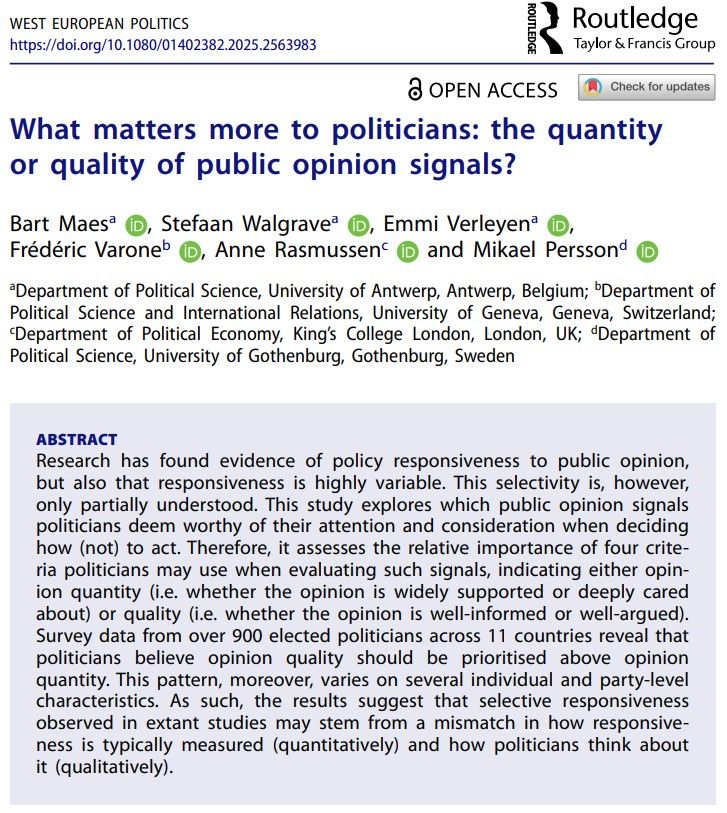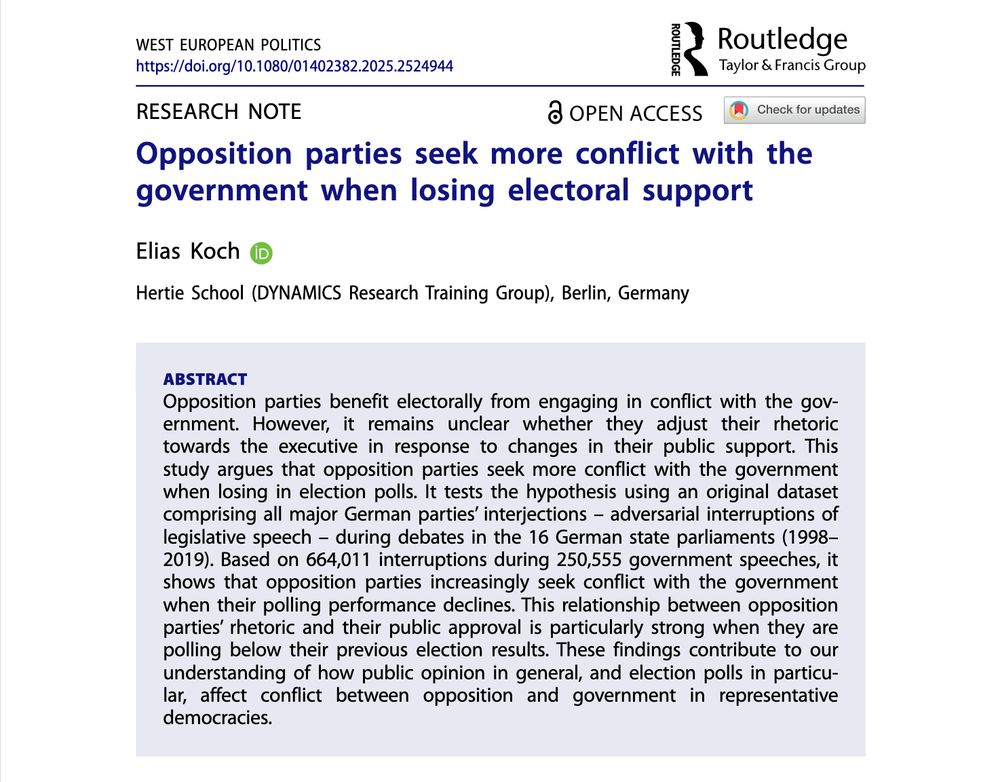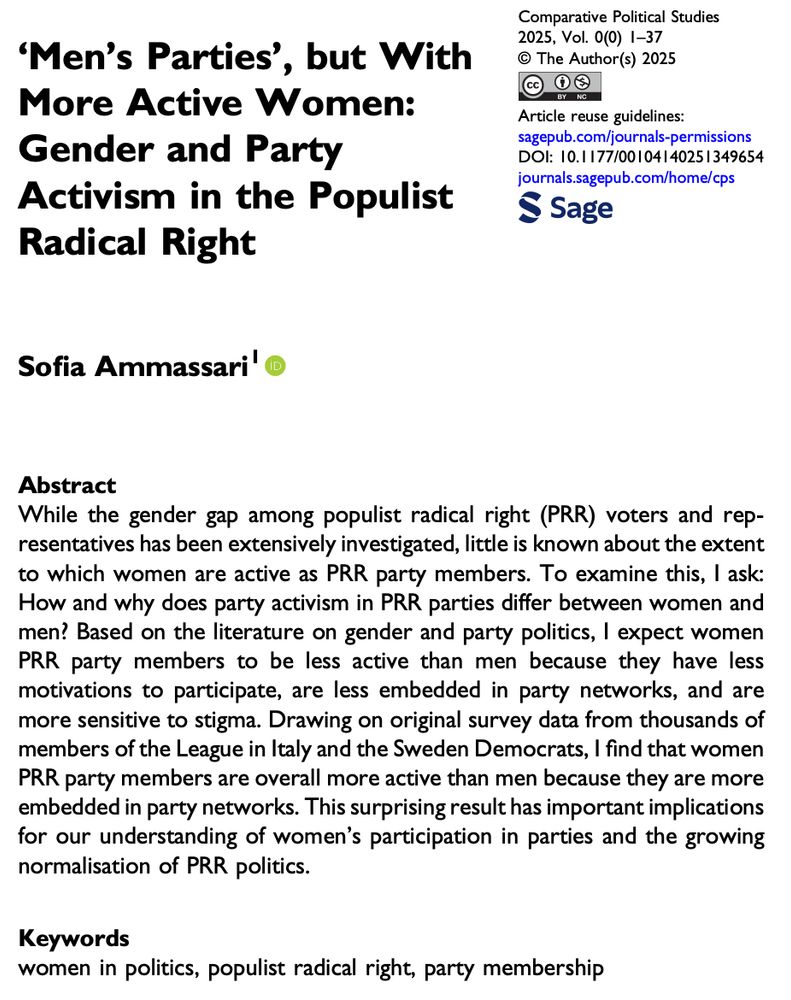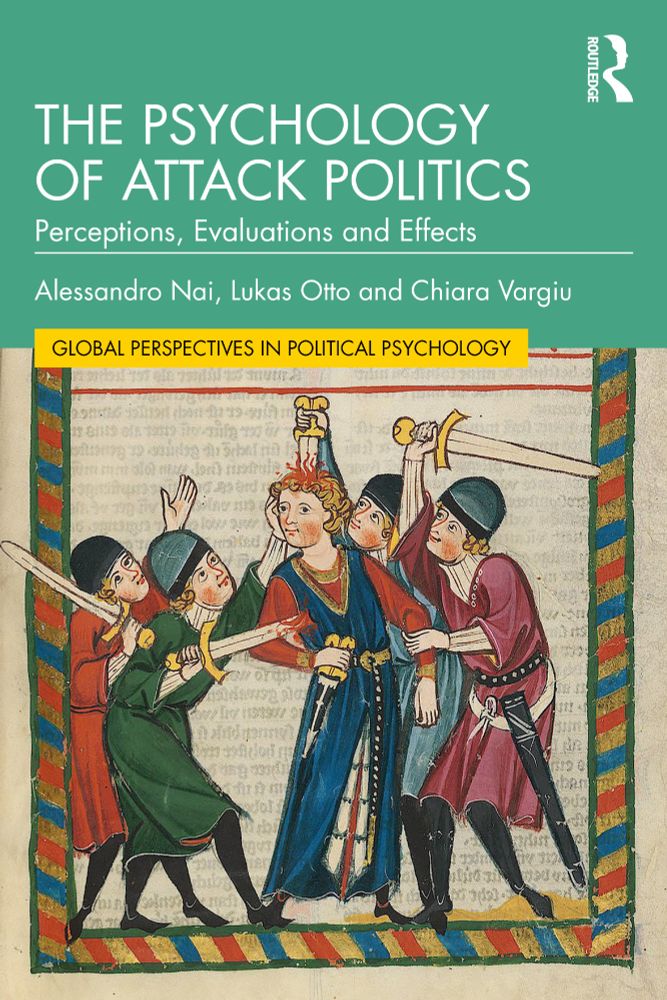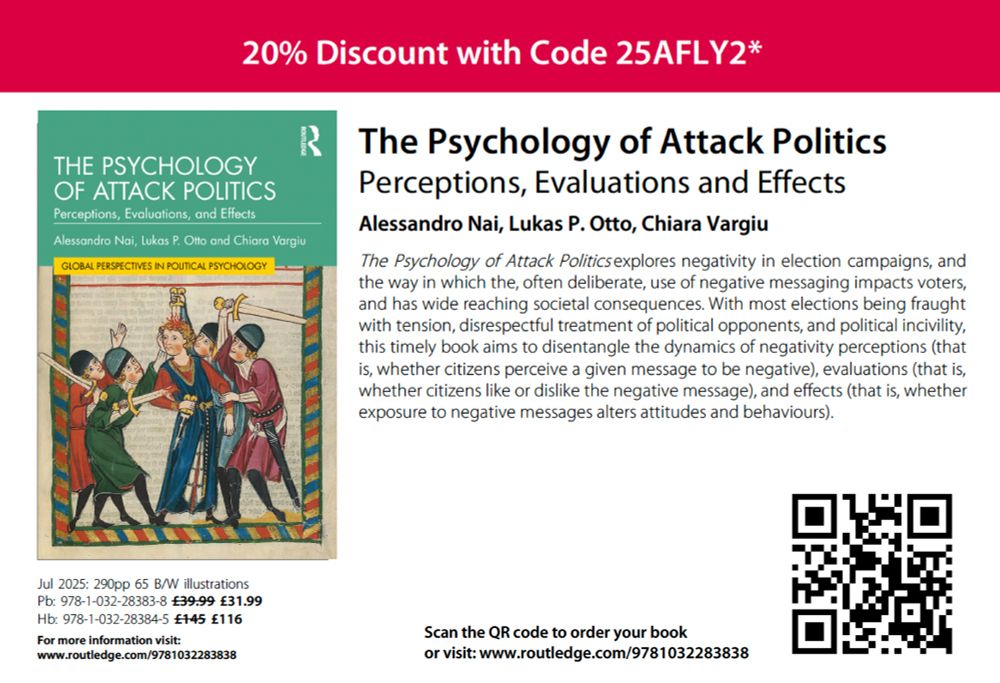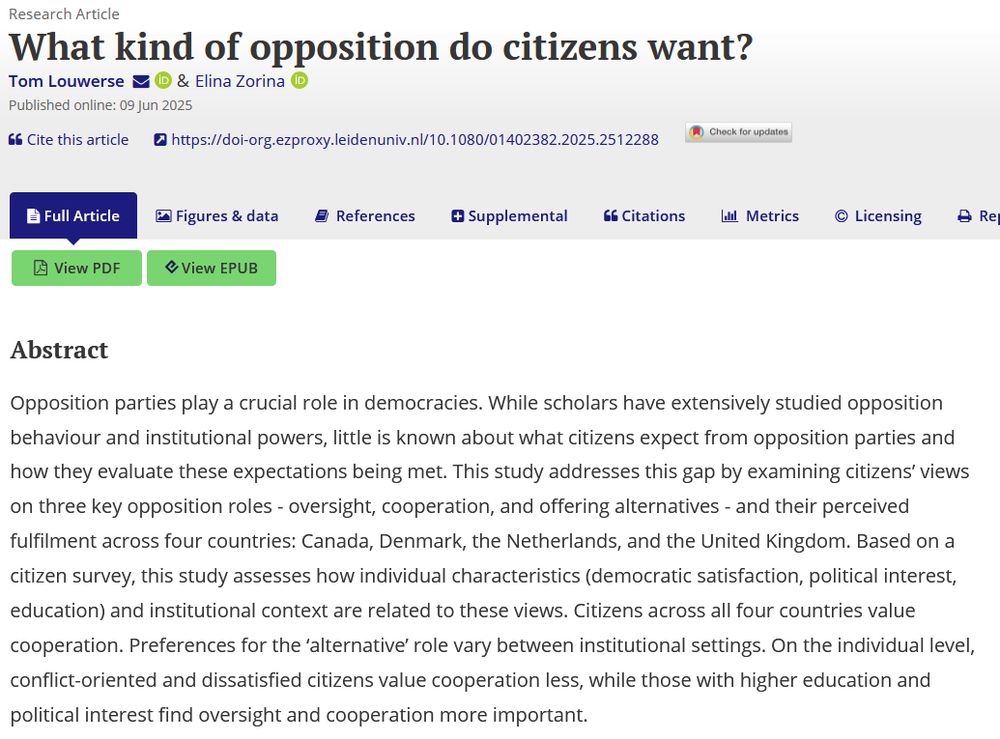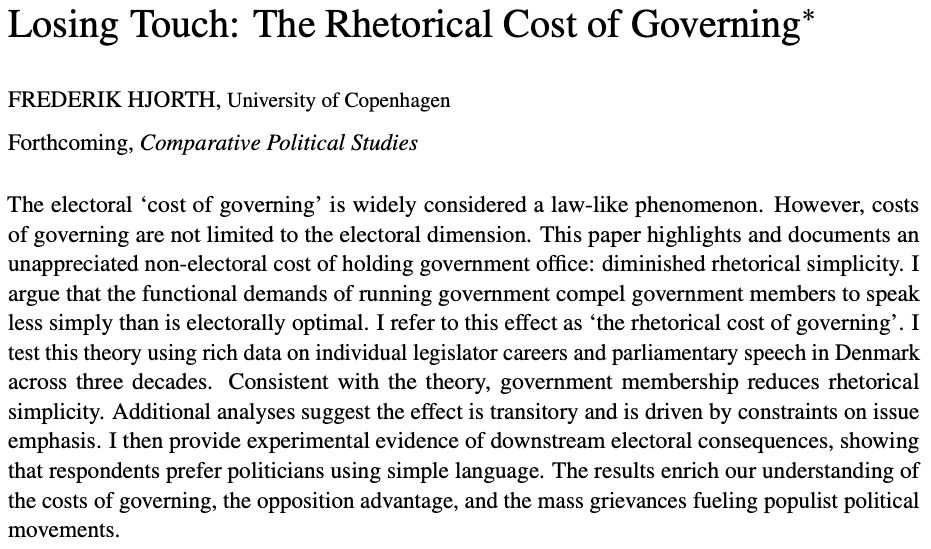Zeljko Poljak
@zeljkopoljak.bsky.social
320 followers
370 following
29 posts
Postdoc @ University of Antwerp
Political Communication | Party Politics | Agenda-Setting
Posts
Media
Videos
Starter Packs
Pinned
Reposted by Zeljko Poljak
Reposted by Zeljko Poljak
Reposted by Zeljko Poljak
Reposted by Zeljko Poljak
Reposted by Zeljko Poljak
Reposted by Zeljko Poljak
Zeljko Poljak
@zeljkopoljak.bsky.social
· Jun 19
Reposted by Zeljko Poljak
Zeljko Poljak
@zeljkopoljak.bsky.social
· Jun 17
Reposted by Zeljko Poljak
Reposted by Zeljko Poljak
Reposted by Zeljko Poljak
Reposted by Zeljko Poljak
Reposted by Zeljko Poljak
Reposted by Zeljko Poljak
Reposted by Zeljko Poljak
Chris Butler
@chrisbutlerpol.bsky.social
· May 27

Politicians are better at estimating public opinion when they think it is more salient - Chris Butler, Stefaan Walgrave, Karolin Soontjens, Peter John Loewen, 2025
Politicians’ perceptions of public opinion matter for substantive representation, but previous work has concluded that they do not have very accurate perception...
journals.sagepub.com
Reposted by Zeljko Poljak
Reposted by Zeljko Poljak
Alona O. Dolinsky
@alonadolinsky.com
· May 14
Reposted by Zeljko Poljak
Alessandro Nai
@alessandronai.bsky.social
· May 14

Vacancy — PhD Position "Visual Politics and the Emergence of Angry Publics"
Are you curious about how images, videos, and memes transform political communication? Are you passionate about digital technology and the future of democracy? Then apply for this PhD project focused ...
werkenbij.uva.nl
Zeljko Poljak
@zeljkopoljak.bsky.social
· May 12

